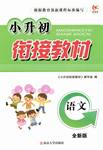题目内容
Gold in Heaven
There once was a rich man 1. was near death. He was very upset because he had worked so hard for his money and wanted to take it with him to heaven. So he began to pray that he might be able to take some of his wealth with him.
2. angel heard his pray and appeared. “Sorry, but you can’t take your wealth with you.” The man begged the angel to speak to God to see 3. he might break the rules. The angel reappeared and informed the man that God had decided to allow him to take one suitcase with him. 4. (excite), the man gathered his largest suitcase and filled it 5. pure gold bars.
Afterward, he died and showed up in heaven to greet St. Peter. 6. (see) the suitcase, St. Peter said, “Hold on, you can’t bring that in here!” The man explained to St. Peter that he had God’s 7. (permit). St. Peter checked it out, came back and said, “You’re right. You are allowed one carry-on bag, but I’m supposed to check its contents 8. letting it through."
St. Peter opened the suitcase to inspect the things that the man found too precious to leave behind and exclaimed, “You brought pavement? 9. you can see, the great street of the city of heaven 10. (make) of pure gold!”
1.who
2.An
3.if/whether
4.Excited
5.with
6.Seeing
7.permission
8.before
9.As
10.is made
【解析】
试题分析:
1.who 考查定语从句。a rich man 充当其后面定语从句的先行词,指人,故要用关系代词who引导定语从句,故填who。
2.An 考查冠词。本处是说,一位天使听到了他的祈祷,出现了。这里第一次提到这个天使,要用不定冠词,angel 以元音因素开头,要用an,故填An。
3.if/whether考查连接词。分析句子结构,可知see之后为宾语从句,该宾语从句主谓宾齐全,但表示不确定,故要用if/weather引导宾语从句。句意:这位男士乞求天使和上帝说说情,看看是否能让他破例。故填if/whether。
4.Excited 考查形容词。上帝同意了他的请求,所以他非常兴奋,整理那只最大的箱子。该处用excited修饰主语the man。故填Excited。
5.with 考查介词。fill ...with ...用……装满……,为固定搭配。with表示用某物。该处是说,他用金条装满了箱子。故填with。
6.Seeing 考查非谓语动词。see和句子的主语St. Peter之间为主动关系,要用现在分词seeing作状语,故填Seeing。
7.permission 考查名词。空缺处前面出现了名词所有格God’s,说明空缺处应为名词,permit的名词为permission,have sb’s permission 得到某人的许可 ,故填permission。
8.before 考查连词。让箱子通过之前要先检查箱子里的物品,用before符合语境。故填before。
9.As 考查固定搭配。上文说到,St. Peter打开这个人的箱子发现里面满是金条,于是他说,你把人行道都带来了?正如你所能看到的,天堂里最宽大的街道是用纯金铺的!故填As。
10.is made 考查被动语态。主语the great street 是make这一动作的承受者,要用被动语态。be made of 由……制成的,故填is made。
考点:考查语法填空

 学而优衔接教材南京大学出版社系列答案
学而优衔接教材南京大学出版社系列答案